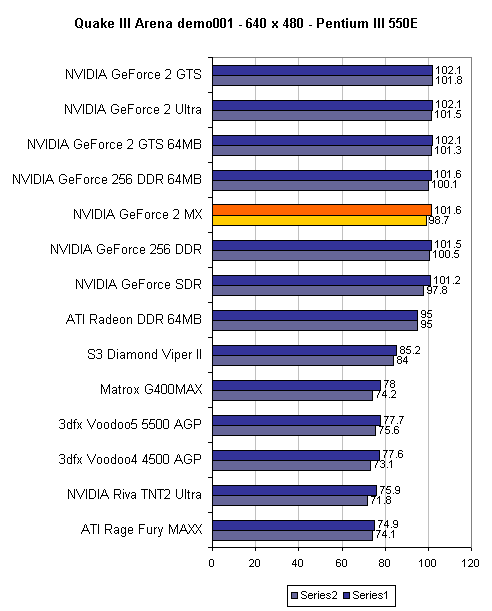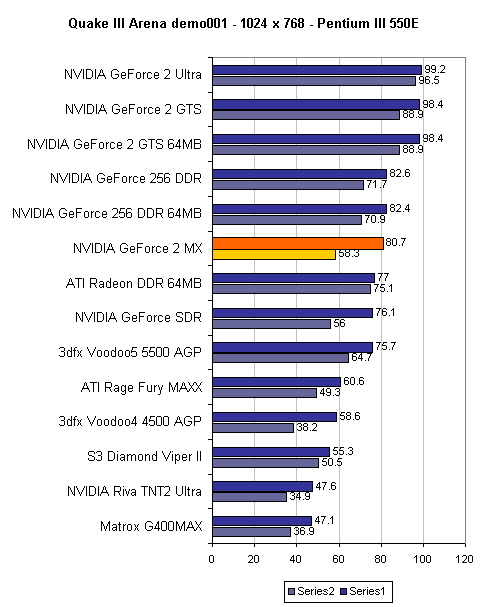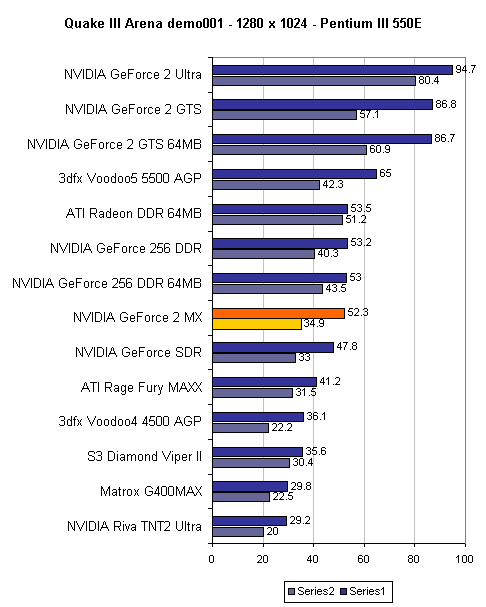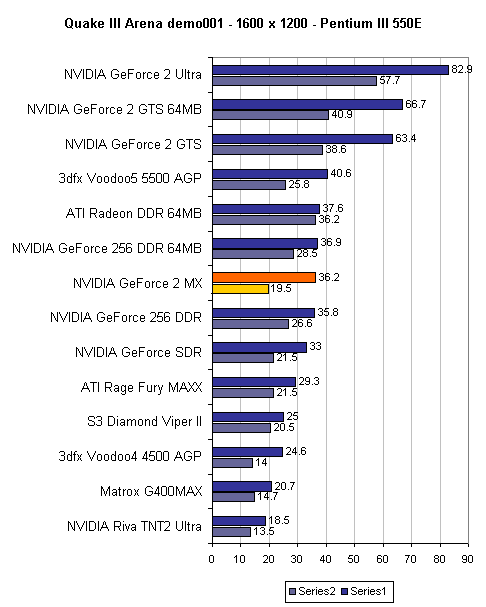OpenGL Performance - Quake III Arena - Pentium III 550E




As you can see, the VisionTek GeForce2 MX provides quite a bit of bang for the buck. Running slightly slower than the GeForce256 DDR, the MX really shows what it is made of. One thing to note is that while the MX appears right below the GeForce256 DDR for many of the tests, the graphs are sorted by 16-bit performance. When 32-bit performance is examined, we find that the MX does not place as high. From 1024x768x32, all the way to 1600x1200x32, the 32-bit performance of the MX is only about the same speed as the GeForce256 SDR. This is without question a result of the slow memory pipeline present on the GeForce2 MX as a result of the 166 MHz SDR memory. The MX still does offer quite the bang for the buck, going a very smooth 58.3 FPS at 1024x768x32.
Since, in theory, 16-bit performance and 32-bit performance should be identical (only more information needs to travel over the memory bus, and theoretically this bus should be infinitely fast), we can peg the culprit down as the slow SDR memory found on all GeForce2 MX cards. In addition, it is interesting to note that while the GeForce2 MX's core is more advanced than the GeForce256 core found on the GeForce256 SDR card, the additional might does not provide much extra speed, once again showing that the memory bottleneck is quite large. Cranking up the memory clock on these cards should provide the fix we are looking for. For more information regarding this subject, check out both our GeForce2 MX review as well as our Overclocking the GeForce2 MX guide.










0 Comments
View All Comments